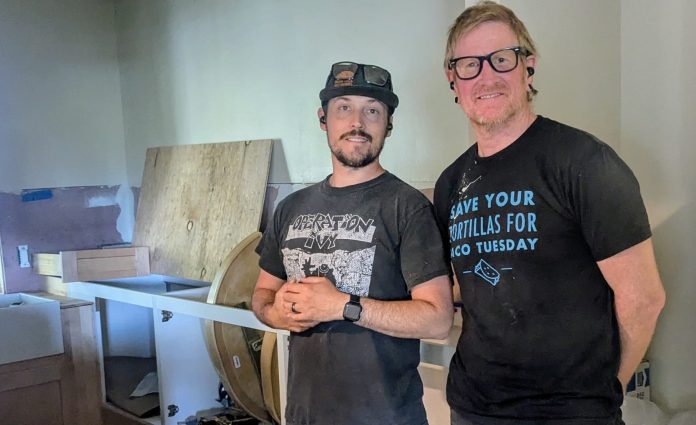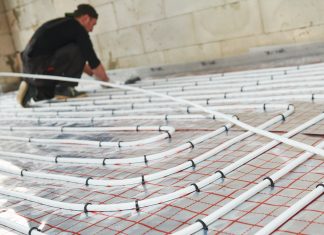David Bridgman and Erik Stewart are creating a kitchen, tearing down walls, building walls, and discovering they have to completely replace a major beam before they can do the work of creating a space. They work seamlessly, efficiently, with bursts of laughter erupting from the workspace. The two have been doing this together for over five years in their company, Bow Hill Millworks.
It happens that, in addition to being skilled craftsmen, they are musicians. There is a distinct link. “There are disproportionately more people in construction who have a creative outlet than people might think,” says David. “I’ve thought a lot about this. I think the creativity and flexibility in problem solving in construction is how you communicate in music.” The pair’s musical journey has led them to discover musicians who are also in construction.
So, You’re a Musician. What’s Your Day Job?
Musicians are found everywhere, of course. Chris Romanelli, a lawyer in New York City who specializes in helping people who have been wrongfully injured, was a bass player before he was a lawyer, touring with metal and punk bands, including The Plasmatics (not exactly construction per se, but they were known for chainsawing guitars on stage), and KISS. He discusses the dilemma faced by musicians who must create and play while also making a decent living. “Unless you are filling stadiums,” he says, “the return is not so great.” That was then. Now, with streaming services, Chris says laughingly, he’s had 5,400 hits online and still earned only about thirty-three cents. He became an attorney and now gets great satisfaction out of helping people. It’s hard to point to Plasmatics lyrics in a family newspaper, so here’s a link to a Wikipedia article about an album listing Chris in the personnel.
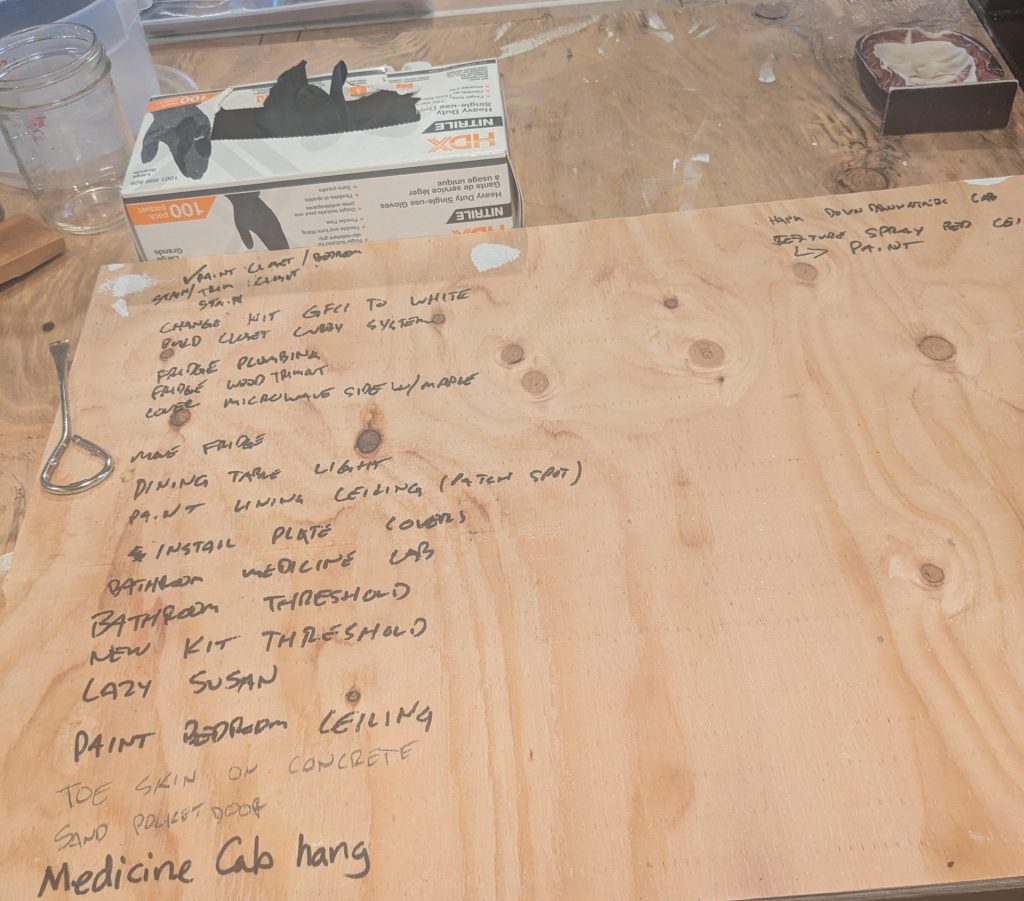
While David and Erik may be thinking about music as they work during the day, and maybe worrying about a construction problem after they’ve left the job for the day, they’ve carved out time for the music. Erik plays bass guitar, drums, keyboard, kalimba, and mandolin. He uses naps to transition from the day and refresh the creative side of his mind. David is a drummer.
It’s definitely a balancing act. David and Erik describe it as a harmonious, symbiotic balance that involves listening to each other and the other people involved in their construction work and their music. “We’re sharing vision, collaborating, finding fits and ending up with something everyone is proud of.”
Their approach to working together and to their work is almost philosophical. “Construction is space, how you put something into space that’s empty,” Erik says. “Music is empty space, silence. We visualize how to fill the space in each profession.” They talk about how they want to fill that void. “Here’s what it is now, and here’s the vision, something I am visualizing in my head. How do I fulfill that?” says David.
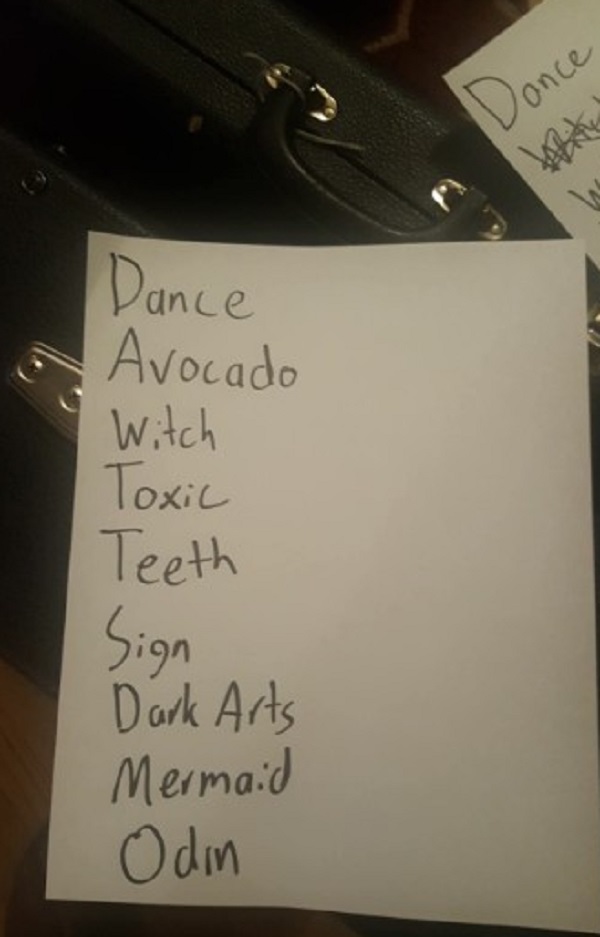
The Beginnings for David Bridgman and Erik Stewart
The two played together in a group they called The Ladies Men. They had been fooling around with an idea of singing covers of songs connected to women performers. They wanted to pay homage to the women as singers, artists, and entertainers. “Women are always doing that with men, but it’s rare to hear men singing songs associated with women.” They performed songs like Tina Turner’s What’s Love Got To Do With It”, or Lady Gaga’s “Material Girl.” People responded. Men were up on the dance floor right away. “Usually it’s the women who are up and dancing, but everyone got up. It was so great to see,” says Erik.
This pair of musicians is planning to record in the near future. David plays fairly regularly with three bands – the Wyrds, the No-Fi Soul Rebellion, and Green Daze (a cover band). His bandmates have other jobs, including being a visual artist and middle school teachers. He draws a comparison between what they all do in their work lives with the music. “We are all able to see the end picture,” he says. “They create a lesson plan which they use to guide students through the journey of the curriculum. It’s not dissimilar to writing a song. We have an idea in mind, we talk it through, collaborate, and see how we each react. Just as I see clients react to the building process, the teachers react to the responses of their students.”
Erik is more of a musician than a lyricist. He responds to lyrics first. “I like to read a lyric first, get the rhythm, know how many syllables there are in it (math!). Then I go for the vibe. Is it dark, happy, loving, confused?” Then melodies come to him. “Oftentimes, when I’m by myself, I’ll sit down and start playing. Anything that makes music, I want to touch and see what it does.”
David’s forte is drums. He and his twin brother, also a musician and a crane operator, became proficient as bass recorder players when they were six. David migrated to drums because his father had one in the closet!
It’s been a good match for these two. David describes Erik as having endurance and being unwaveringly intuitive. Erik admires David’s natural knack for seeing challenges and looking at multiple ways to accomplish things. The relationship stands them both in good stead in their work on stage and off.
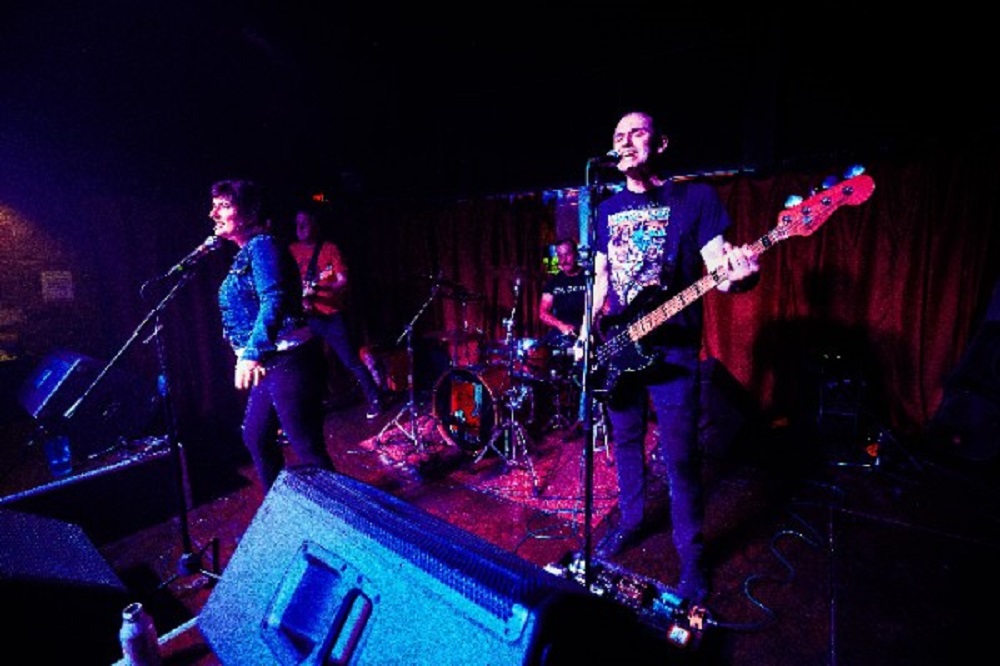
Setting Realistic Boundaries
The friends are realistic about the boundaries of their lives and agree it’s never been about filling stadiums. “At this stage, it’s more about playing what we want to play, what people enjoy. Being received well is nice, but I think we don’t want to be on tour and gone from our homes, families and friends.” Erik nods then adds, “The last time it was stadiums for me, I was 17 and I was like ‘oh I could do that, I want to do that.’ After that, it really became the music that is more important.”
“And,” David ends with, “I’m happier at the end of a day that I got to swing a hammer, too.”
Catch David Bridgman and his group, the Wyrds, at Schweinhaus Biergarten in Bellingham on September 6. Contact for music and construction gigs: Bowhillmillworks@gmail.com.





























